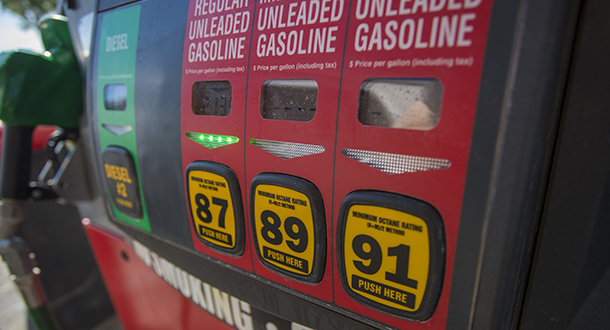
Credit: AAA
April 7, 2022 - Washington - Senator Dianne Feinstein (D-Calif.) this week joined Senators Maria Cantwell (D-Wash.) and Ron Wyden (D-Ore.) in asking the Federal Trade Commission to investigate whether trading practices used to set benchmark gas prices may have played a role in artificially elevating wholesale petroleum prices in West Coast states.
“We are concerned that current prices borne by consumers at the pump are disproportionate to the rise and subsequent decline in the price of crude oil over the past month and cannot be fully explained by supply and demand fundamentals,” the senators wrote in a letter to FTC Chair Lina Khan. “In particular, we request that you investigate any trading practices involved in setting benchmark indices and any role those practices may have or had in artificially elevating wholesale petroleum prices in the states of California, Oregon, and Washington.”
Background:
- Gas prices in California are currently averaging nearly $6 per gallon, up from $3.42 per gallon in March 2019.
- Since 2005, Federal Energy Regulatory Commission investigators have found more than $520 million in illegal profits gained by petroleum companies manipulating markets to exploit consumers. FERC’s investigations have resulted in 127 settlement agreements and $790 million in civil penalties.
- The California Energy Commission in 2019 found the following: “The overall California increase in retail margins, above that experienced by the rest of the U.S., has resulted in California gasoline consumers paying an estimated additional $1.5 billion in 2018 and $11.6 billion over the last five years.”
- Researchers from the University of California, Berkeley, found that between February 2015 and October 2018, alleged price gouging at California gas stations led to a price increase of more $17 billion, or about $1,700 for a family of four.
Full text of the letter, led by Senator Cantwell, chair of the Senate Committee on Commerce, Science, and Transportation, follows and is available here:
April 5, 2022
The Honorable Lina Khan, Chair
Federal Trade Commission
600 Pennsylvania Avenue, NW
Washington, DC 20580
Dear Chair Khan:
We write to request that you conduct an investigation into the volatile and elevated gasoline, diesel, jet fuel, and other petroleum distillate prices burdening West Coast consumers. We are concerned that current prices borne by consumers at the pump are disproportionate to the rise and subsequent decline in the price of crude oil over the past month and cannot be fully explained by supply and demand fundamentals. In particular, we request that you investigate any trading practices involved in setting benchmark indices and any role those practices may have or had in artificially elevating wholesale petroleum prices in the states of California, Oregon, and Washington.
Elevated and volatile gasoline and diesel pump prices have exposed how little is known about how prices are set in the opaque petroleum markets, despite their profound impact on the U.S. economy and household budgets. According to the April 5, 2022, testimony of Robert F. McCullough, Jr. before the Senate Commerce Committee, certain benchmark indices are used to price petroleum contracts across the West Coast market. These indices are based on transactions that are not on an exchange, not public, and not well understood. Unfortunately, as we personally learned during the West Coast electricity crisis, markets that function in secrecy more easily fall victim to manipulation and can lead to millions of dollars of overcharges for our constituents.
As you know, Congress expressly authorized the Commission to conduct investigations in the wholesale petroleum markets in Section 811 of the Energy Independence and Security Act of 2007 (42 U.S.C. § 17301). Congress modeled the FTC’s anti-manipulation authority on the same authority granted the Securities and Exchange Commission (SEC) and the Federal Energy Regulatory Commission (FERC) to combat manipulation in their jurisdictional markets. Since the 2005 Energy Bill provided FERC with its anti-manipulation authority, the Commission has approved 127 settlement agreements and has assessed more than $790 million in civil penalties and ordered more than $521 million in disgorgement. Consumers deserve the same proactive enforcement in the wholesale petroleum markets as FERC undertakes in the electricity and natural gas markets.
High and volatile fuel prices are hindering our economy and burdening families. Our constituents need to be confident that the markets are operating efficiently and fairly. To achieve this, we hope the Commission will fully utilize all of its tools and legal authority to monitor, analyze, investigate and prosecute any market manipulation that could be contributing to today’s record high West Coast petroleum prices.
Sincerely,
Maria Cantwell
Chair
Dianne Feinstein
United States Senator
Ron Wyden
United States Senator
Source: Senator Dianne Feinstein








